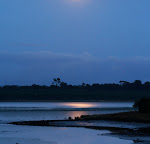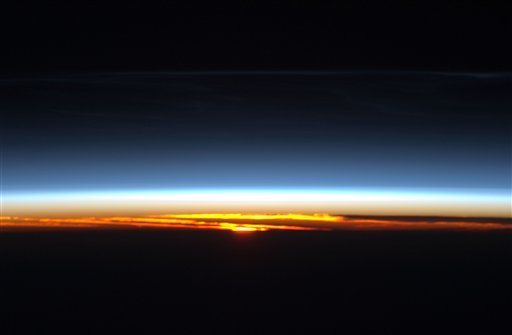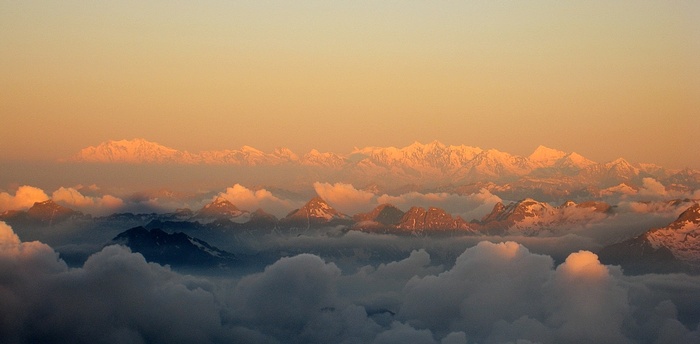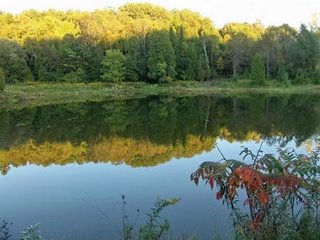While I can't say I am unfamiliar with the phrase magic hour someone of India mentioned, used in cinema world, I find no recollection of it being ever used in any western or Nordic country, either in talk or in literature or on television or in films. It is possible one forgets now what seems not quite so important, but searching memory produces no mention of the phrase anywhere in Europe or US. What might be possible is it is one of those phrases that seem to be of one language while not really from a country of that language.
This happens sometimes to for example French, at least one phrase I am very familiar with from English literature is completely unfamiliar as a phrase to the AF teachers of French. Another such usage which seems to be of English language but is totally made up in India is "co" instead of "in law" when a symmetric relationship through two marriages is involved. South Indians use it extensively, while in north Hindi words usually do. In English speaking lands the phrase would be sister in law or brother in law for both possibilities. In south India they would say co sister or co brother for a symmetric relationship, and if one used the other phrase, they would correct you, under the impression that they have it right.
It seems to make sense, moreover, that the magic hour is a phrase made up in India, and all the more so in cinema world of Hindi cinema of Mumbai. Sunset is very beautiful in Mumbai (east coast, not so much), and the welcome relief from heat comes only thereafter (east coast begins to cool already at noon with cool breezes from the ocean).
In Nordic lands twilight is preferred long because it delays dark, something to be not liked, rather feared - only natural when forest creatures and others are likely to have more power. Moreover where sun is not all that hot and light is dim most of the time anyway, daylight with clear sun is termed "nice day" while cloud, rain, dark and so forth are disliked. Snow is another story, welcome because it does bring more light, and not wet you, and strangely enough it is better than dry winters which are far colder and not so enjoyable.
And what is more, fairy tales that one is so familiar with originate in Nordic lands, and are not exactly the Disney happy versions most of the times - they are full of things to be feared, and those precisely are what abound in dark, whether of winter when it is dark so long or on everyday nights all through the year. So twilight is not a happy time, it is only good in being long and not so abrupt as it is in tropics where dark descends in a jiffy. Nor do people go about watching sunsets as they do in India and perhaps all through tropics or hot parts of earth. It is a time to be indoors and light up until one is ready for bed.
Most telling of course is the hour part of the phrase. It is possible that twilight is an hour in southern US, but again, culturally it is not a part of the day liked or at least established in literature and language as liked, because the European heritage continues culturally in most part, the only significant difference being of daily showers common in US (twice quite often likely), while Europe still continues the centuries traditions of preferring baths and that not so often. Heat might be enough in CA or too much in ex confederate south, but culture still prefers sunshine, and while the latter likes various options for cooling during hot days, food still is European in most part, and so on. Nights are seen as time for "night life" or for bed, and only those serious (whether amateur or otherwise) about either study or art or music or science or stargazing have other ideas of how to pass dark hours. It is unlikely that twilight is termed magic hour even in those parts, because it is a part of the evening and falling dark is not significantly liked as such but is a time for evening occupations - whether homing to dinner and more, or going out for the evening (which is a term lasting until one goes to bed).
So association of magic and hour with twilight is likely to be of origin in Mumbai and quite rightly so. In those parts it is. Magic seems to be so small, so very insufficient and inadequate a phrase for this phenomena one experiences in Mumbai, it could only come from relatively hurried minds seeking for a catch phrase. And what is more, magic is not always positive, as one would know very well, if one is familiar with lands of fairy tales.
More than magic, in Mumbai and in Delhi and other parts too in India (albeit not east coast so much, especially in south), it is a celebration of beauty everyday at twilight, a festival of colours that light up the western skies as dusk brings a welcome cool and fresh breeze, while stars begin to appear over the ocean and overhead, and one is forever grateful for being able to see it and experience it on so every day a basis.



